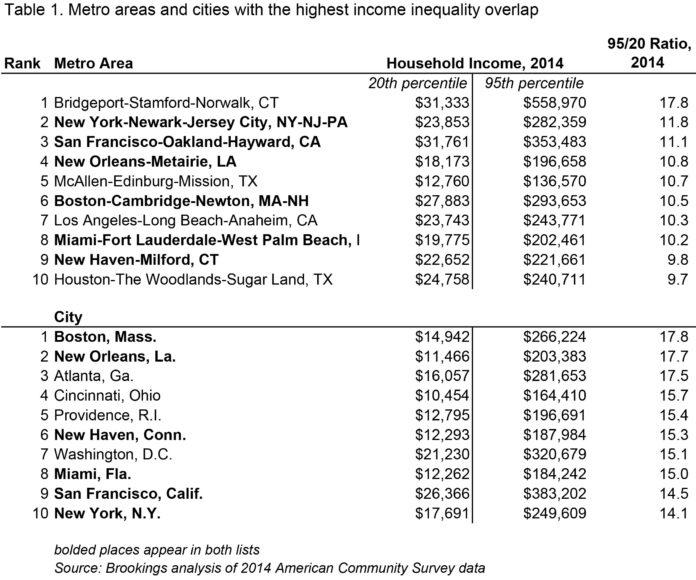
PROVIDENCE – Rhode Island’s capital city is the fifth-highest in the nation for income inequality, behind Boston, New Orleans, Atlanta and Cincinnati, according to a report from The Brookings Institution.
Brookings said it focused on the difference between households at the top – those earning more than 95 percent of all other households – and those closer to the bottom – those earning more than 20 percent of all other households – for each of the 100 largest U.S. metro areas and the largest city in each of those metro areas, based on 2014 data.
Providence showed a large difference in household incomes – $196,691 at the 95th percentile and $12,795 at the 20th percentile, creating a 95/20 ratio of 15.4 percent. In comparison, Boston’s ratio was 17.8 percent, based on high earners at $266,224 and low earners at $14,942.
Providence’s 95/20 ratio was higher than the national average of 9.3, and for big cities in the metro areas, which averaged 11.8.
Brookings provided some insight into the data. Boston’s large student population “partly explains its relatively low 20th percentile incomes,” while Providence exhibits “relatively high poverty and very low incomes” among its bottom-earning households.
“Providence may actually need more high-income households in order to boost its tax base and improve the quality of its public services,” the report said.
The report said that inequality may be undesirable for numerous reasons, noting that it could diminish schools’ ability to maintain mixed-income populations that produce better outcomes for low-income students, and could narrow the tax base from which municipalities raise the revenue needed to provide public services.
“And local inequality may raise the price of private-sector goods and services for poor households, making it even more difficult for them to get by on their limited incomes,” the report stated.












